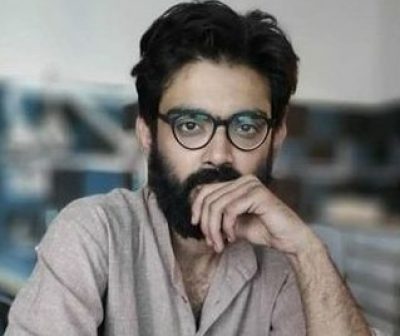New Delhi, Feb 4 (IANS) A Delhi court on Saturday, while discharging former JNU student and activist Sharjeel Imam, co-accused Asif Iqbal Tanha and others in a case related to the incidents of violence at Jamia Millia Islamia in December 2019, said that the police were unable to apprehend the actual perpetrators behind the commission of the offence, but surely managed to rope in the above-mentioned accused as ‘scapegoats’.
The violence had erupted after a clash between the police and people protesting against the Citizenship Amendment Act (CAA) in December 2019.
Additional Sessions Judge of Saket Court Complex, Arul Verma, passed the order.
Verma said that the protesters were surely there in large numbers and it cannot be denied that some anti-social elements within the crowd created an environment of disruption.
However, the moot question remains as to whether the accused persons herein were even prima facie complicit in taking part in that mayhem, Verma asked.
“The answer is an unequivocal ‘no’. Marshalling the facts as brought forth from a perusal of the chargesheet and three supplementary chargesheets, this court cannot but arrive at the conclusion that the police were unable to apprehend the actual perpetrators behind the commission of the offence, but surely managed to rope in the persons herein as scapegoats,” he said.
The chargesheet was filed against accused Mohd Ilyas on April 21, 2020, and a supplementary chargesheet was also filed against him alongwith a complaint under Section 195 of the Code of Criminal Procedure (CrPC).
Thereafter, a second supplementary chargesheet was filed before the court against 11 other accused persons, namely Sharjeel Imam, Asif Iqbal Tanha, Mohammad Qasim, Mahmood Anwar, Shahzar Raza Khan, Mohd Abuzar, Mohd Shoaib, Umair Ahmad, Bilal Nadeem, Chanda Yadav and Safoora Zargar, who have been discharged in the matter.
“To allow the persons charge-sheeted to undergo the rigmarole of a long drawn trial does not augur well for the criminal justice system of our country,” Verma said.
He added that such police action is “detrimental to the liberty” of the citizens who choose to exercise their fundamental right to peacefully assemble and protest.
The court said: “The desideratum is for the investigative agencies to discern the difference between dissent and insurrection. The latter has to be quelled indisputably. However, the former has to be given space, a forum, for dissent is perhaps reflective of something which pricks a citizen’s conscience.”
The court said that before embarking on galvanising the judicial system against the 11 accused persons, the investigative agencies should have incorporated the use of technology, or have gathered credible intelligence.
“Else, it should have abstained from filing such ill-conceived chargesheets qua persons whose role was confined only to being part of a protest,” the court noted.
“In view of the above in extenso analysis, considering the fact that the case of the State is devoid of irrefragable evidence, all the persons charge-sheeted barring Mohd Ilyas are hereby discharged for all the offences for which they were arraigned. They be set at liberty, if not wanted in any other cases,” the court added.
However, Imam, who is also an accused under the Unlawful Activities (Prevention) Act in the conspiracy case related to the 2020 North-East Delhi riots, will remain in custody.
The court, meanwhile, framed charges of unlawful assembly and rioting against Mohd Ilyas.
“Photographs of Mohd Ilyas have been clearly shown in a newspaper, hurling a burning tyre, an overt act has been ascribed to him, and he has been duly identified by police witnesses,” the court noted.
–IANS
spr/arm





